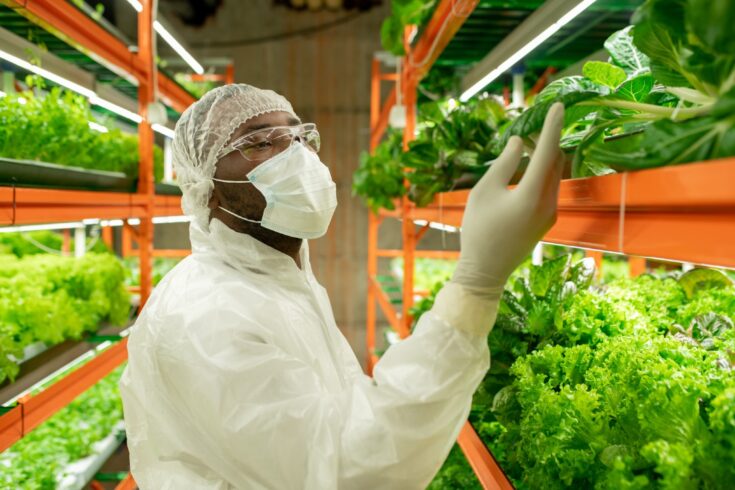Cambridge Policy Consultants Ltd has reviewed the economic impact of 457 spin-out companies. These were established following years of research support by the UK’s chief public funder of bioscience research and innovation, the Biotechnology and Biological Sciences Research Council (BBSRC). It has concluded that the spin-outs have contributed £5.2 billion to the economy and created thousands of jobs.
The review analysed the economic contribution of these spin-outs over a 25-year period between 1997 and 2021.
BBSRC invests more than £450 million each year in a wide-ranging portfolio of bioscience research and other activity aimed at unlocking bio-based solutions to some of the country’s biggest economic and societal challenges.
The findings
The review found that in 2021 to 2022, 402 spin-outs supported by BBSRC funding employed over 8,000 people across a wide range of UK markets. These include:
- health services (29%)
- pharma (22%)
- biotech (21%)
- agriculture (10%)
- food manufacturing (10%)
It also revealed that bioscience spin-outs established following BBSRC support are present in other, unexpected sectors, such as:
- transportation
- wellness and beauty
- sports
Another finding was that BBSRC-backed spin-outs are spread right across the country, with nearly half found outside of London, the south-east and the east of England.
Professor Guy Poppy, BBSRC Interim Executive Chair, said:
Although much of the transformative research BBSRC funds often remains unseen by the public eye, its impact should never be underestimated.
The breadth of our investments in bioscience research extends into every corner of society, addressing some of the most pressing global challenges of our time.
From the conversion of agricultural waste products into biodegradable plastics, the creation of novel biomaterials for construction to the development of bio-inspired adhesives for use in surgical practices, BBSRC’s commitment to supporting innovative and interdisciplinary research is unwavering.
As we navigate the complexities of the modern world, the hidden work funded by the BBSRC is quietly laying the foundation for a healthier, more sustainable future while boosting economic growth and prosperity right across the UK.
Steve Bagshaw, Chair, High Value Manufacturing Catapult and BBSRC Council member, said:
This report demonstrates the huge potential of bioscience research to boost growth across the UK economy.
The companies receiving funding from BBSRC have created thousands of jobs and are helping to improve lives right across the UK.
Their innovation will continue to drive beneficial change and help to create a more sustainable, healthier future for us all.
We are very proud of their achievements and our role in helping these businesses grow and deliver real impact. We wish them all the best for the future.
Bio precision insect control
Researchers led by Professor Shireen Davies of the University of Glasgow co-founded spin-out SOLASTA Bio in May 2020. Offering an entirely new concept for the bio sector, the company develops alternatives to traditional chemical insecticides and other bio-options, which are not fully sustainable and are damaging to the planet. The company develops environmentally friendly insect control products, which preserve the ecosystem by targeting specific species and protecting beneficial insects such as bees.
BBSRC played a pivotal role along the way, investing significantly in the fundamental research, the de-risking of technology, patent filing and agri-tech translational research. SOLASTA is on track to bring its first biopesticides to market in 2027, less than half the time traditionally taken by synthetic pest control products.
In vitro models to predict in vivo outcomes
Academics from Newcastle University founded Newcells Biotech Ltd in January 2015. The team of scientific experts provides clients with validated and optimised 3D in-vitro models of human organs (retinas, kidneys, lungs and livers) to demonstrate and predict drug outcomes.
The health benefits from Newcells’ research and technology are significant, improving the ability to generate data on the safety, efficacy and pharmacology of drugs prior to human trials.
Harnessing nature to advance chemical manufacturing
Since 2005, BBSRC has supported Professor Kylie Vincent and Dr Holly Reeve on their journey to develop cleaner, more energy-efficient chemical manufacturing processes. Formally spun out from University of Oxford in 2021, today HydRegen are shaking up the biochemical industry with their novel strategies for cleaning up pharmaceutical manufacturing and simplifying the adoption of bio-based manufacturing processes.
Top image: Credit: shironosov, iStock, Getty Images Plus via Getty Images

